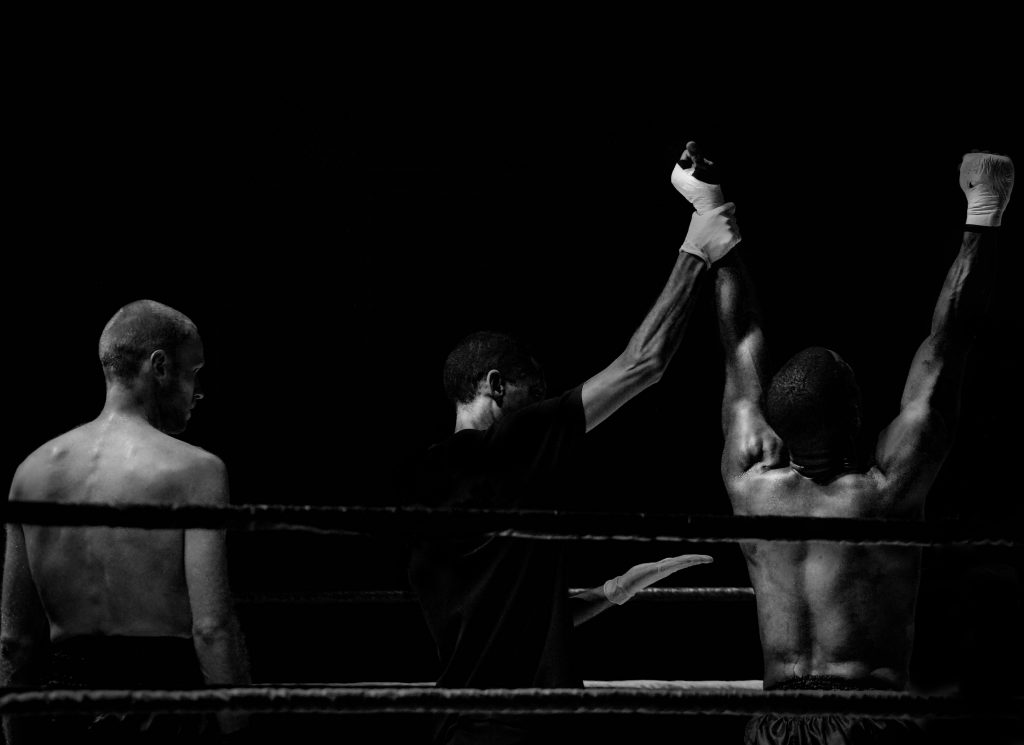Have you been toying with the idea of getting an executive coach for a while now, but you’ve been reluctant to move forward because you weren’t quite sure where to begin? Nowadays, it can seem like more and more people are hanging out a shingle calling themselves a coach of some sort. As a result, you might be a little unsure about how to select an executive coach coach who’s not only going to be qualified, but will also be a good fit for you.
To help you to wade through the confusion, in this article, you’re going to learn what you need to know so that you can pick out a coach who will be the right one for you. We’ll cover (1) who can benefit from executive coaching (2) some of the benefits of executive coaching, and (3) how to find an executive coach who will be a good fit for you.
WHO CAN BENEFIT FROM EXECUTIVE COACHING?
Wondering if you could benefit from working with an executive coach? Here are some common scenarios that come up in coaching:
- If you’re someone who feels like your underachieving relative to your potential, an executive coach can help you to figure out why. For example, a coach can help you to see if there are issues with your communication style that could be causing problems in your interactions with people. Or, she could help you to uncover areas that you could tighten up in order to become more productive. Does your confidence need a boost? A coach can help with that too. Regardless of the problem area, an executive coach can help you to identify the problem, solve it, and assist you in improving your performance.
- Not sure exactly where you could grow? Executive coaching can also help you if you’re not entirely self-aware about your strengths and developmental opportunities. A skilled coach will assist you in pinpointing your talents so that you can make sure that you’re seeking jobs that will be in your sweet spot. Further, she can help you to leverage your strengths in your current role, and minimize your weaknesses so that they won’t hold you back.
- Executive coaching is also suitable for someone who might be performing really well in his current job, but who knows what he needs to develop some additional skills to be ready for the next level. Perhaps he wants to move into leadership or take on a bigger role, and he knows he doesn’t have the ability to do that let. An executive coach could help you to identify the competencies that you would need in the roles you aspire to, and help you to create an action plan so that you’ll be ready when the opportunity comes up in the future.
- Are you a leader who doesn’t know how to coach and inspire your team? That’s not uncommon. Often, people might be elevated into leadership positions because they’re really good at the technical aspects of their work. Still, they might not know how to manage people. An executive coach could assist you in learning how to become a better leader, so that you can boost your team’s engagement and help them perform at their best.
- Are you a high performer who is always looking for ways to continue to boost your performance? Just like an athlete who is always seeking ways to get a competitive edge, many growth-oriented professionals enjoy working with a coach so that they can continue to learn about themselves, fine-tune, and get ongoing counsel from a trusted advisor.
- Finally, an executive coach could help you if you’re not fulfilled in your current career. In coaching, you could uncover where your passions lie and figure out how your strengths, personality, and current knowledge, skills, and abilities all intersect. Armed with that information, you and your coach could come up with some other careers that could be a good fit for you, and would be likely to bring you fulfillment, happiness, and success.

ADVANTAGES OF WORKING WITH A COACH
Once you’ve determined that you’re a good candidate for coaching, you might be wondering what some of the advantages are to working with a coach. Research shows that working with an executive coach can improve your performance, and ultimately, that’s generally why most people want to work with one. However, here are some more specific advantages of having a coach:
- A great executive coach will be a confidant for you, while also stretching you and supporting you as you move towards your goals. Wouldn’t it be great to have someone who is in your corner? Someone who can brainstorm with you, give you homework experiments, great advice, and really be there for you to give you encouragement and feedback as you move towards your career goals? That’s what an executive coach can do for you.
- An executive coach can also provide you with an objective perspective. For instance, during my career I’ve had the benefit of consulting in organizations in which I was coaching a lot of different people at once. One of the really interesting things that would happen is that I would hear about the same situation, but depending on who I was talking to, I would get a slightly different spin on it (or sometimes, they were completely different). No one was doing it on purpose – their perception was their reality. However, a good executive coach recognizes that there are multiple ways of looking at an issue. Therefore, he or she will listen to your perspective, but might also encourage you to think about other ways of viewing the situation as well. That way you can make sure that your perspective is a well-rounded one, that isn’t unduly clouded by your own personal biases.
- An executive coach can also give you a forum for talking about issues that might not be comfortable to talk about with your boss or colleagues. In a perfect world, your boss should be providing you with coaching; however, there may be sensitive topics that you might not want to broach with him or her. For instance, what if your boss is part of the problem? Therefore, an executive coach can help you to problem solve and figure out the best approach for dealing with your boss, your colleague, or whatever the issue may be.
- A coach can also help you to clarify your goals. Perhaps you know you need to change something, but you just don’t know how. A skilled coach can help you to operationalize your goal and develop an action plan so that you can move forward in the best possible way.
- An executive coach can also provide you with accountability. For instance, I have a personal trainer, and one of the things that helps me to get to the gym regularly is the knowledge that I’m paying him to train me and hold me accountable. Also, he pushes me in ways that I probably wouldn’t push myself – all to help me to accomplish my goals of becoming a healthier version of myself.
HOW TO SELECT AN EXECUTIVE COACH
Now that you’ve decided that you want an executive coach, you might be concerned about how to pick the right one. This is often where people can feel a bit overwhelmed; however, here are some factors to consider in your search:
- What are your coach’s qualifications? Coaching isn’t particularly regulated – anyone can call himself or herself a coach. To wade through some of this, you’ll want to make sure that the person is certified. Your coach might have a coaching certification, or they could be someone like me who has a PhD in psychology.
- What is your coach’s experience? Does your coach have experience working with professionals? How many years of experience does he or she have? Does he or she have experience with your industry? While this last one may not be a deal-breaker, per se, it can be helpful if your coach has some experience working with others in your field, as it’ll enable him or her to understand your situation more efficiently. For instance, I have over 15 years of experience consulting to individuals in organizations from middle management to the C-suite. I’ve seen a lot of different businesses, in different industries, in different regions, and that provides me with a much broader background and expertise than I had when I just started out. It can often be helpful to clients to hear about how leaders with similar challenges address certain situations. A coach who has worked with a range of leaders is better equipped to be able to have those sorts of conversations.
- Does your coach use data? Although you might think you’re pretty self-aware, the reality is that as individuals we might not always be as objective as we think we are. In fact, we can sometimes have blind spots. Therefore, if you have a coach who draws on data in your work together, that will provide you with objective information that you can draw on to make sure that you have an accurate perception of yourself. For example, in my work I conduct personality testing as part of my coaching engagements. That enables us to get an objective view of your strengths, potential weaknesses, and overall personality style. Further, as a psychologist, I have access to a lot of tools that people who are not licensed are not able to use. Again, that allows us to make sure that we’re really focusing our efforts in a targeted way to help you to achieve your goals.
- How do you feel when interacting with your coach? For you to be open with your coach, you need to have a good relationship. You need to trust that your coach is in your corner – even when she’s pushing you or holding you accountable. Yes, you want someone who will listen to you and be empathetic, but you also want someone who believes in you and is willing to challenge you to become your best self. Therefore, the best coaches aren’t necessarily like a best friend who will listen and agree with everything you say. Instead, you’ll likely want someone who can push you while also being supportive.
The Seattle Seahawks coach, Pete Carroll, said, “Each person holds so much power within themselves that needs to be let out. Sometimes they just need a little nudge, a little direction, a little support, a little coaching, and the greatest things can happen.” Find yourself the right coach for you, and prepare to unleash your power!
Still have some questions about how to select an executive coach? Feel free to contact me, and I’ll be happy to answer them!


